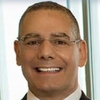Welcome to BARBRI, the trusted global leader in legal education. Continue to access the same expert-led Strafford CLE and CPE webinars you know and value. Plus, explore professional skills courses and more.
About the Course
Introduction
This CLE course will guide patent practitioners to draft their patent applications to overcome Section 101 challenges during prosecution, litigation, and AIA reviews. This panel has decades of experience in Section 101.
Description
Patent eligibility in the context of software-related inventions is not always apparent. Patent practitioners and applicants have struggled since the Supreme Court's decision in Alice Corp. v. CLS Bank Int’l (2014) to understand what qualifies as an abstract idea.
Recent Federal Circuit decisions on software-related claims have provided more guidance on patent eligibility. Understanding the court's rationale in recent decisions will increase the likelihood that a patent drafter's claims will pass step one or two of the Alice patent-eligibility test.
Counsel must carefully draft their specifications and claims to increase the likelihood of the patent surviving at the district court as well as during a post-grant review.
Listen as our authoritative panel of patent attorneys reviews the courts' guidance in the post-Alice decisions. The panel will offer their perspectives and experiences concerning patent applications/claims, including anticipating Section 101 rejections when drafting the claims.
Presented By

Mr. Bahr specializes in all areas of patent practice. He previously served as the Deputy Commissioner for Patent Examination Policy at the USPTO. During his distinguished career at the USPTO, he was involved in nearly all patent-related rulemaking since 1995. His involvement in patent rulemaking includes the changes to implement the American Inventors Protection Act of 1999 and the Leahy-Smith America Invents Act. He provided administrative oversight and direction for the activities of the Office of Petitions, Office of Patent Legal Administration, Office of Patent Quality Assurance, Central Reexamination Unit, and Manual of Patent Examining Procedure staff during his tenure at the USPTO.

Mr. Kiklis leverages his 30 years of experience to represent clients in his areas of focus: trials at the USPTO Patent Trial and Appeal Board (PTAB) and patent litigation. He has been involved in 100 PTAB trials. Mr. Kiklis also handles appeals to the Federal Circuit from his cases, having now been involved in over 20 appeals. He both enforces and defends the intellectual property rights of his clients and is often called upon to handle cases worth more than $100 million. Mr. Kiklis brings an in-depth understanding of the business and IP needs of his technology clients, which he developed from years of experience in virtually every kind of patent matter, from cross-licensing and due diligence to bet-the-company PTAB trials and patent litigation. Mr. Kiklis has an extensive background in computer science based on his six years of experience as a software developer at some of the computer industry’s leading companies. He provides significant and influential thought leadership as a frequent speaker and author on patent law, including patentable subject matter and PTAB trials. He is also the author of The Supreme Court on Patent Law, an 800-page treatise devoted to the Supreme Court’s patent law jurisprudence.
-
This 90-minute webinar is eligible in most states for 1.5 CLE credits.
-
Live Online
On Demand
Date + Time
- event
Thursday, April 3, 2025
- schedule
1:00 p.m. ET./10:00 a.m. PT
- Challenges in drafting software patents
- Guidance from recent decisions
- Best practices for drafting software patent applications
- Benefits of claimed inventions
- Providing details in the specification
- Drafting claims to survive 101
The panel will review these and other key issues:
- What are the hurdles for patent counsel to demonstrate a software-related claim is not abstract?
- How can patent practitioners pass Alice's step two if an abstract idea is identified?
- What guidance have the courts provided in recent decisions concerning patent eligibility for software-related inventions?
- What best practices should counsel use to help software-related inventions survive 101 challenges?
Unlimited access to premium CLE courses:
- Annual access
- Available live and on-demand
- Best for attorneys and legal professionals
Unlimited access to premium CPE courses.:
- Annual access
- Available live and on-demand
- Best for CPAs and tax professionals
Unlimited access to premium CLE, CPE, Professional Skills and Practice-Ready courses.:
- Annual access
- Available live and on-demand
- Best for legal, accounting, and tax professionals
Unlimited access to Professional Skills and Practice-Ready courses:
- Annual access
- Available on-demand
- Best for new attorneys




